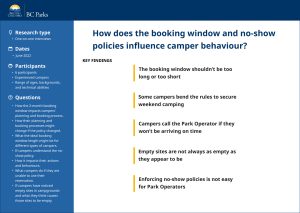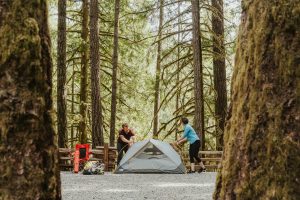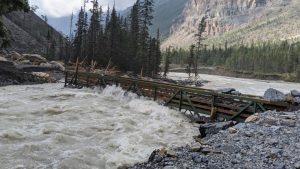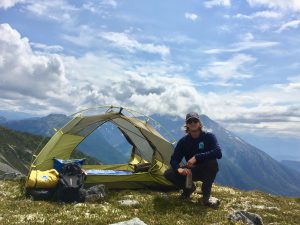Youth Employment Program and Student Ranger Program, Summer 2021
Categories:
When Mackenzie Clark comes into work, she knows she’s going to learn something new and chances are she will be out in the field, in a provincial park. Mackenzie is one of 37 youth employed in the BC Parks Youth Employment Program across the province, with 11 co–op positions and 26 student ranger intern positions, under the broader umbrella of the StrongerBC Future Leaders Program.
Both the Youth Employment Program and Student Ranger Program provide young people with meaningful employment opportunities and new skill development while completing projects that support park management. “It’s really fun to do scotch broom removal because you see visible progress really quickly,” said Mackenzie “I was surprised that the pretty flowers I commented on at Gowlland Tod (Provincial Park) are actually invasive sweet peas!”

Mackenzie also had varied experiences this summer with a trip to Botanical Beach (Juan de Fuca Provincial Park) where she and a coworker set up a booth at the trailhead to talk to people about the park and park etiquette. Many park visitors are unaware that simple behaviours can help protect the environment, such as having dogs on a leash so they don’t chase wildlife and crush sensitive ecosystems, or keeping hands out of tide pools to protect sensitive sea life.
Over the summer, Mackenzie also visited Vargas Island Provincial Park, where BC Parks staff were doing a joint beach cleanup with Surfrider organization. She was thrilled to see sea otters for the first time in the wild and lots of grey whales, some orcas and even wolf tracks. “I think I’d rather see the tracks than the real wolf!” she laughs.
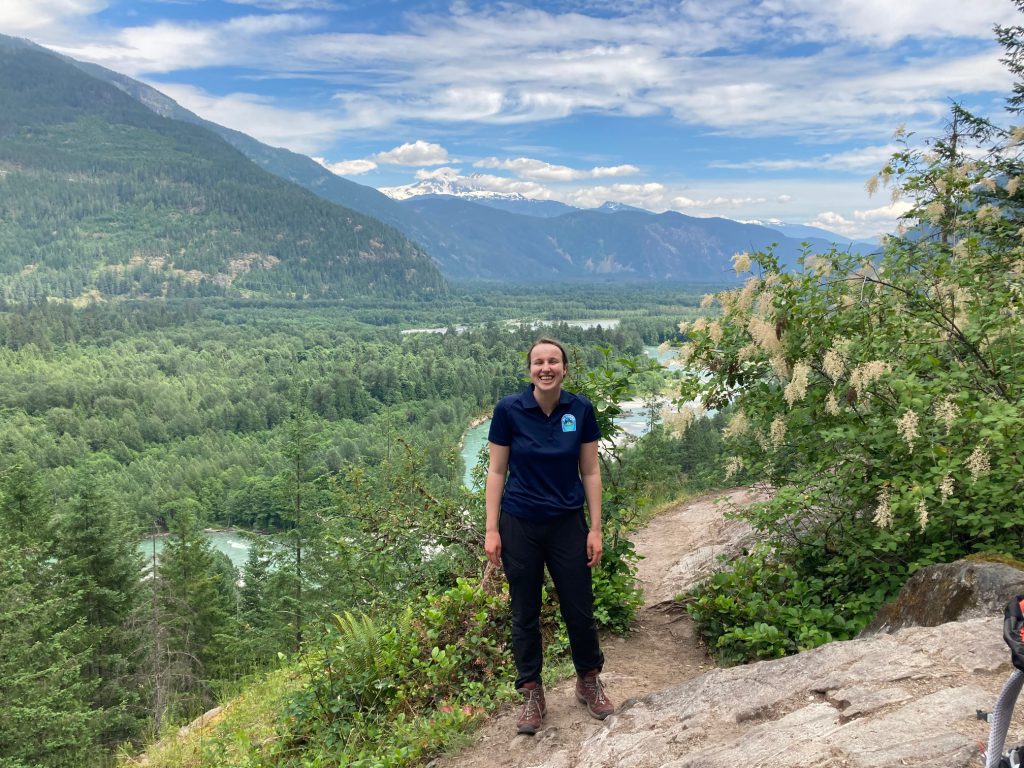
Elysia Fuller-Thomson, another student ranger intern, is based in Alice Lake, and has just graduated from McMaster University in the Integrated Sciences Program. “I applied to work in parks because I love using parks. Parks have been a part of my life since I was really young,” she said”
“A major project I worked on was to help build a better understanding of visitor use in BC Parks. We are monitoring many parks in the Sea to Sky region,” Elysia said. “This region has had unprecedented visitation growth even before the pandemic. We were looking at how many people were using a certain trail vs another one. Trail counters are the biggest indication of how many people are using the trails and are a really important resource. Visitor use influences operational and planning priorities and decisions. For example, should we build more campsites, and bridges?”
Elysia’s long term goal is to solve big environmental problems, whether in government or consulting.
“This job experience gave me a perspective on how to tackle park overuse which is an environmental and social problem. There is a ton of people using our parks for the first time. We have a huge opportunity to educate them.”
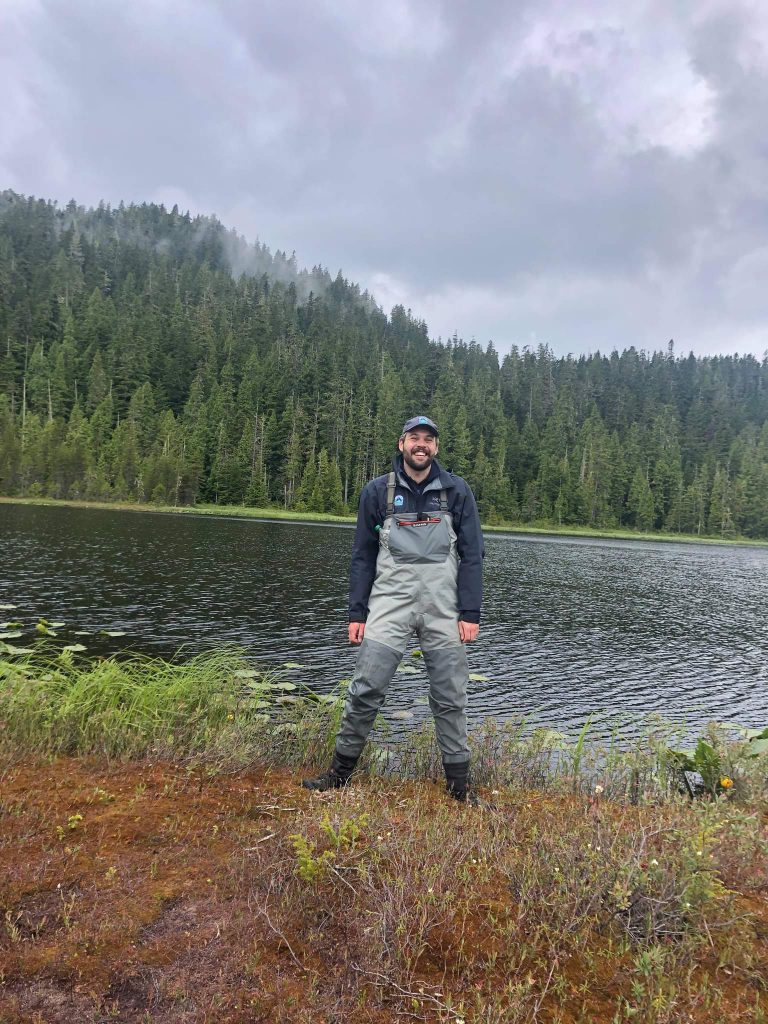
Sean Roufosse, is a student ranger crew ember based in Terrace. The Student Ranger Program is now in its fourth year and is funded by the BC Parks Licence Plate Program and Project Learning Tree Canada.
One of Sean’s summer experiences was a boat trip to do trail work and beach cleanup in the Lucy Islands Conservancy and King George Provincial Park, east of Prince Rupert and Metlakatla. Another experience was doing sling training, how to attach and detach a sling to a helicopter. Slings are used to bring materials into a back country area, for example to build a tent pad on alpine terrain.
“We were taught about different ecosystems, and endangered animals to be aware of, especially bird nests. For example, the Northern Goshawks, which are red listed as endangered.” Sean said.
Sean is finishing a degree in geography with a specialization in environment and sustainability and a minor in urban studies from UBC. “Often in society, when we talk about nature, we separate society from nature. I’m interested in learning how to reduce the divide between society and nature and what that means for future policy development. It’s really great to see people understanding why we are protecting wild spaces.”
Another experience was doing culture camps with Indigenous youth and elders. Terrace is next to the Nisga’a Treaty, the first modern treaty in BC. More learning came from coworkers and park operators who are Indigenous, about the history of the nation, cultural perspective and realities, and the current state of reconciliation in this area.
“I’ve learned a lot in three months, more than I thought I would. It’s been interesting to hear the impact of parks on people during the pandemic. Certain areas have seen large traffic increases. Parks in the north are amazing, the culture of the north is really accepting and kind. Such a privilege to experience. “
Most of the Youth Employment Program and Student Ranger Program staff finish work at the end of August, and for most part, they head back to the classroom, with their summer experiences and skills part of their road ahead.

